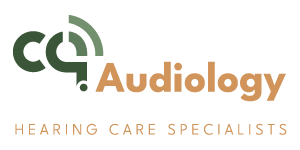Contact Us
We would love to speak with you.
Feel free to reach out using the below details.
Visit our main clinic
- T33 & 34A, City Centre Plaza, 24 Fitzroy Street, Rockhampton, QLD 4700
Get In Touch
- Phone: (07) 4848 6528
- Email: reception@cqaudiology.com.au
Trading Hours
- Mon-Fri 9:00AM - 5:00PM
- Sat 9:00AM - 12:00PM
Get a callback
Fill out the form below and we will contact you as soon as possible!
CQ Audiology Visiting Sites
BARCALDINE
Barcaldine 60 & Better Program
13 Willow Street
QLD 4725
BILOELA
Ace Medical Centre
48 Grevillea Street
QLD 4715
BLACKALL
Blackall Hospital
189 Landsborough Highway
QLD 4472
BLACKWATER
North Blackwater General Practice
14 Blain Street
QLD 4717
EMERALD
Lot 1 Pilot Farm Road
QLD 4720
MOUNT MORGAN
41 Morgan Strreet
QLD 4714
ROCKHAMPON CITY
T 33 & 34A City Centre Plaza
24 Fitzroy Street
QLD 4700
TAMBO
Tambo Multi Purpose Centre
26 Arthur Street, Tambo Queensland 4478
LONGREACH
North & West Queensland Primary Health Sercvies
19 Duck Street, Longreach Queensland 4730
YEPPOON
Keppel Bay Medical Centre
Shopt 26, Keppel Bay Plaza
64-67 James Street
QLD 4703

Experience Unmatched Clarity with Hearing Test Kawana - Rockhampton
Why Do I Need a Hearing Test?
Are you looking for hearing test Kawana – Rockhampton QLD? Have you ever considered the impact of your hearing health on your daily life? Regular hearing tests aren’t just for those who notice difficulty; they’re a proactive measure to maintain your overall well-being. Whether you’re experiencing signs of hearing loss or simply aging gracefully, these evaluations are crucial. They can reveal the subtlest changes in your hearing ability—changes you might not even be aware of yet. Now, consider what might be lurking just beyond your notice. What could a simple hearing test uncover about your health that you’ve been missing? Stay tuned to uncover more about the unseen benefits of hearing tests.
Importance of Regular Hearing Tests
Regular hearing tests are crucial because they can catch hearing loss early, ensuring timely intervention to maintain your hearing health. If you’re over 60, it’s recommended that you have an annual check-up. For younger adults, every 3-5 years is generally sufficient, unless you notice potential hearing issues. These regular assessments aren’t just about identifying hearing loss; they also help in detecting conditions that could be contributing to or exacerbating hearing problems.
Early testing in children is particularly vital. It supports proper language development and overall well-being, ensuring they’ve the tools needed for successful communication from the start. This proactive approach in early life can prevent a range of developmental delays linked to untreated hearing issues.
Moreover, sticking to a schedule of regular check-ups can reduce your risk of cognitive decline associated with untreated hearing loss. It allows health professionals to track any changes in your hearing ability over time, facilitating adjustments in treatment or management plans. This ongoing monitoring ensures you can adapt to various lifestyle changes, maintaining or enhancing your quality of life despite potential hearing challenges.
Signs You Need a Hearing Test
If you’re struggling to follow conversations or often ask people to repeat themselves, it might be time for a hearing test. Another telltale sign is if you’re having difficulty understanding speech over the phone or if every call seems muffled or distant. Perhaps you’ve noticed that you need to increase the volume higher than usual when watching TV or listening to music.
Experiencing ringing in your ears, also known as tinnitus, is a common symptom that shouldn’t be ignored. Similarly, if you find it hard to hear in noisy environments or can’t easily pick up high-pitched sounds like the beeping of a microwave or a bird chirping, these are indicators that your hearing may not be as sharp as it used to be.
Children might show different signs such as delayed speech development, frequently turning up the volume too high on electronic devices, or seeming inattentive when spoken to. These could suggest hearing issues that warrant a professional check.
Lastly, if you find yourself feeling isolated in social gatherings because you can’t keep up with the group conversation, it’s important to consider seeking a hearing test. Addressing these signs early can significantly enhance your communication and overall quality of life.
What Does a Hearing Test Check?
A hearing test evaluates your ability to detect various sounds and determines the type and severity of any hearing loss you may have. Conducted by an audiologist, this test is crucial for understanding how well you can hear different frequencies and volumes. It’s not just about figuring out if you have hearing loss, but also about identifying the specific characteristics of your hearing profile.
During the test, you’ll be exposed to a range of sounds, and your responses will help pinpoint any difficulties you might be experiencing. The results are recorded on an audiogram, a graph that visually represents your hearing thresholds across various frequencies. This detailed analysis is essential because it shows the softest sounds you can hear at different pitches, providing a clear picture of your auditory capabilities.
Understanding these results is vital for any subsequent steps. If there’s any indication of hearing loss, knowing the type and severity helps in tailoring the right treatment or management strategy. This proactive approach ensures that you address any hearing issues promptly, potentially preserving your hearing and improving your overall quality of life.
Types of Hearing Tests Available
Understanding the different types of hearing tests can help you choose the most appropriate one for your needs. One common type is pure tone audiometry, which gauges your hearing sensitivity at various pitches and volumes, using both air and bone conduction tests. This method pinpoints the quietest sounds you can hear at different frequencies, providing a detailed profile of your hearing ability.
Another crucial test is tympanometry. This isn’t about hearing sensitivity; rather, it assesses the health of your middle ear. It measures how your eardrum responds to changes in air pressure, which can help identify issues like fluid in the ear or eardrum perforations.
Besides these, there are specialized tests tailored for different circumstances. For babies and young children, who can’t communicate their hearing experiences as adults do, audiologists use both behavioral and objective tests. These evaluate the inner ear and hearing nerve function, ensuring any hearing issues are caught early on.
With these options at your disposal, you’re better equipped to understand what each test entails and how it can serve your specific hearing health needs. This insight is vital in maintaining or enhancing your auditory health effectively.
Hearing Tests for Different Age Groups
Let’s now explore how hearing tests are tailored for different age groups to ensure accurate assessment and treatment. You’ll find that the type of hearing test you undergo may vary significantly depending on your age, due to the differences in cooperation level and communication abilities.
For adults, pure tone audiometry is commonly used. This test involves wearing headphones and responding to sounds at different volumes and pitches. It measures both air and bone conduction, helping to pinpoint your hearing levels and identify the type of hearing loss you might have.
Babies and young children can’t respond in the same way adults do, so their tests are designed to monitor their reactions to sounds or check the function of their inner ear and hearing nerves without needing their active participation. Behavioral observation audiometry is one method for infants, where specialists watch for changes in behavior in response to sounds. Older children might undergo play audiometry, where they’re taught to perform a task in response to hearing a sound.
Additionally, tympanometry is used across all age groups to assess the health of the middle ear by measuring eardrum movement and middle ear pressure. This test helps detect issues like fluid accumulation or eardrum perforations.
Understanding Your Audiogram Results
When you receive your audiogram, it reveals your hearing thresholds across different frequencies, essential for assessing the nature and extent of any hearing loss. This graph-like report plots how well you hear various pitches and volumes, helping to pinpoint the specific frequencies where your hearing might be diminished.
The audiogram compares results from air and bone conduction tests. Air conduction measures how well sound travels through the outer and middle ear to the inner ear. Bone conduction, on the other hand, tests the direct transmission of sound vibrations to the inner ear, bypassing the outer and middle ears. This differentiation is crucial as it helps determine whether your hearing issues stem from the inner, middle, or outer ear.
Understanding these results can clarify the type of hearing loss you’re experiencing—be it conductive, sensorineural, or a mix of both. Conductive hearing loss indicates problems in the outer or middle ear, affecting how sound is conducted. Sensorineural loss suggests damage to the inner ear or nerve pathways to the brain.
Your audiologist uses this detailed information to devise a tailored treatment plan, ensuring you receive the most appropriate intervention to improve your hearing health.
Why Choose CQ Audiology for hearing test?
Choosing CQ Audiology for your hearing test ensures you benefit from the latest technology and expert care. Their state-of-the-art equipment provides accurate assessments of your hearing health, allowing for precise detection and analysis of any potential hearing loss. You’re in good hands with their highly qualified audiologists, who offer expert analysis of your test results. They’ll explain everything clearly, ensuring you understand the condition of your hearing and the best steps forward.
CQ Audiology also offers convenient appointment scheduling, making it easy for you to find a time that fits into your busy life. You won’t have to put off important hearing tests because of a tight schedule. Plus, their clinic is located in a place that’s easy to get to, removing the hassle of traveling far for a hearing assessment.
The testing environment at CQ Audiology is designed to be comfortable and professional. You’ll feel at ease during your visit, which can make the testing process smoother and less stressful. Choosing CQ Audiology means prioritizing your hearing health with ease and confidence.
Conclusion
You’ve learned why regular hearing tests are crucial, especially as you age. If you’re noticing any signs of hearing difficulty, don’t hesitate to get checked. These tests assess various aspects of hearing and come in different forms to suit everyone, from kids to seniors.
Understanding your audiogram results can demystify your hearing health. Choose CQ Audiology for your next hearing test; they’re equipped to guide you through the process and help keep your hearing sharp.
DISCLAIMER: The content on our site is intended for educational purposes only and should not be interpreted as an endorsement or recommendation of any treatments or products without a comprehensive hearing assessment. Users should seek professional advice and fully understand any potential side effects or risks before starting any treatment. Products mentioned on our site are not available for purchase by the public without prior consultation with a hearing health expert.
